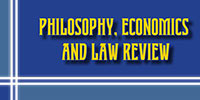Alla ZALUZHNA, Antonii ZALUZHNYI, Tamara SHADIUK
ZALUZHNA A., ZALUZHNYI A., SHADIUK T. (2023), INFORMATION CULTURE IN THE CONTEXT OF MANAGING CONSUMER NEEDS. PHILOSOPHY, ECONOMICS AND LAW REVIEW. Volume 3, no. 1, 40-47
DOI: 10.31733/2786-491X-2023-1-40-47
ABSTRACT. The article is devoted to the study of the content features of the conceptualization the interaction between economic and socio-cultural needs. It was found that the management of consumption needs is determined by economic, socio-cultural, informational and communication factors. In the course of the study, it was established that the conceptual sphere of consumer needs is considered by modern researchers as a system of structuring types of needs based on the consumers’wishes and preferences, establishing a level hierarchy of needs, determining the types of economic behavior and the nature of the interaction between economic and socio-cultural needs.
It is noted that one of the defining features of the socio-cultural development of the post-industrial age is the dominance of the mass and its orientation towards comfort and spectacle, which leads to the preference of a specific type of consumption, the characteristic features of which are stereotyping, demonstrativeness, homogeneity, uniformity and fetishization of material needs. This type of consumption is called demonstrative, it is compatible with irrational forms of consumer behavior, which is characterized by symbolic values of consumption as manifestations of prestige, status, well-being, ownership, following fashion or trend, as well as simulativeness as a shift of emphasis from the object of consumer interest to its perception. On the contrary to this type of consumption, rational economic behavior is justified, which is traditionally defined by such features as taking into account the maximization of benefits and the minimization of costs and risks.
Attention is drawn to the fact that the complexity of consumer behavior is explained by the large amounts of information spreading in modern economic space, which is an important need of a person, as well as a construct of the information-network economy and, therefore, is on the top of strategic importance. Besides, it was noted that freedom of accessing information not only increases the possibilities of consumer choice, but also contains potential risks of misinforming and unconscious choices due to manipulative psychological influence.
Keywords: needs, consumption, consumer, management, information culture, socio cultural sphere, symbols, simulation, simulacra.
References
- Bauman, Z. (2013). Consuming Life. Polity Press. 168 p.
- Baudrillard, J. (2010). America. Verso Books. 160 p.
- Baudrillard, J. (2008). Fatal Strategies. MIT Press. 232 p.
- Baudrillard, J. (2016). Myths and structures. SAGE Publications. 240 p.
- Baudrillard, J. (1994). Simulacra and simulation. University of Michigan Press. 164 p.
- Baudrillard, J. (2016). Symbolic exchange and death. SAGE Publications. 280 p.
- Bourdieu, P. (1992). The Logic of Practice. Polity Press. 333 p.
- Chatriot, A. & Chessel, M. (2017). The Expert Consumer. Associations and Professionals in Consumer Society. Taylor & Francis. 220 p.
- Cohen, M. (2017). The Future of Consumer Society. Prospects for Sustainability in the New Economy. Oxford University Press. 214 p.
- Deleuze, G. (1990). The logic of sense. Columbia University Press. 393 p.
- Demchenko, M. (2022). Neuromarketing as a modern technology of marketing communication: analysis of primary sources. Communications and Communicative Technologies, is. 22, pp. 61-70. [in Ukr.].
- Dyson, F. (2011). Thinking, Fast and Slow. Kahneman. Reviewed by Freeman Dyson in New York Review of Books. Farrar, Straus and Giroux, pp. 40-44.
- Foucault, M. & Fontana, A. (2005). The Hermeneutics of the Subject. Lectures at the College de France 1981-1982. Pan Macmillan. 608 p.
- Fromm, E. (2003). Man for Himself. An Inquiry Into the Psychology of Ethics. Routledge. 198 p.
- Hodgson, G. (2004). The Evolution of Institutional Economics. Agency, Structure, and Darwinism in American Institutionalism. Routledge. 534 p.
- Hodgson, G. (2001). How Economics Forgot History. The Problem of Historical Specificity in Social Science. Taylor & Francis. 448 p.
- Marcuse, H. (2013). One-Dimensional Man. Studies in the Ideology of Advanced Industrial Society. Taylor & Francis. 336 p.
- Maslow, A. (2013). A Theory of Human Motivation. Start Publishing LLC, 34 p.
- Murphy, W. (2016). Consumer Culture and Society. SAGE Publications, 272 p.
- Sassatelli, R. (2007). Consumer Culture. SAGE Publications, 237 p.
- Soni, J. & Goodman, R. (2017). A Mind at Play. How Claude Shannon Invented the Information Age. Simon & Schuster, 366 p.
- Weber, M. (2019). Economy and Society. A New Translation by Keith Tribe. Harvard University Press, 504 p.
